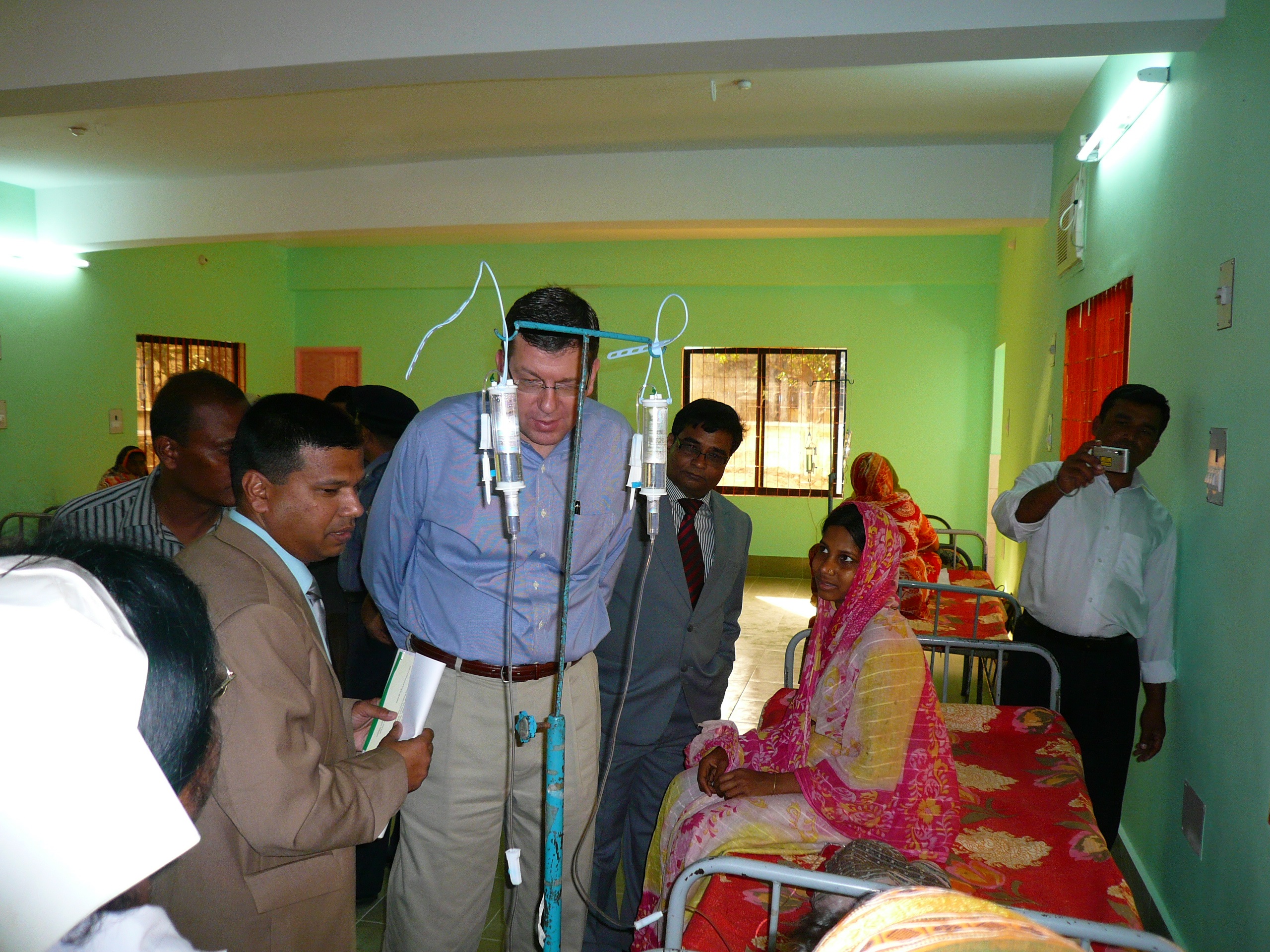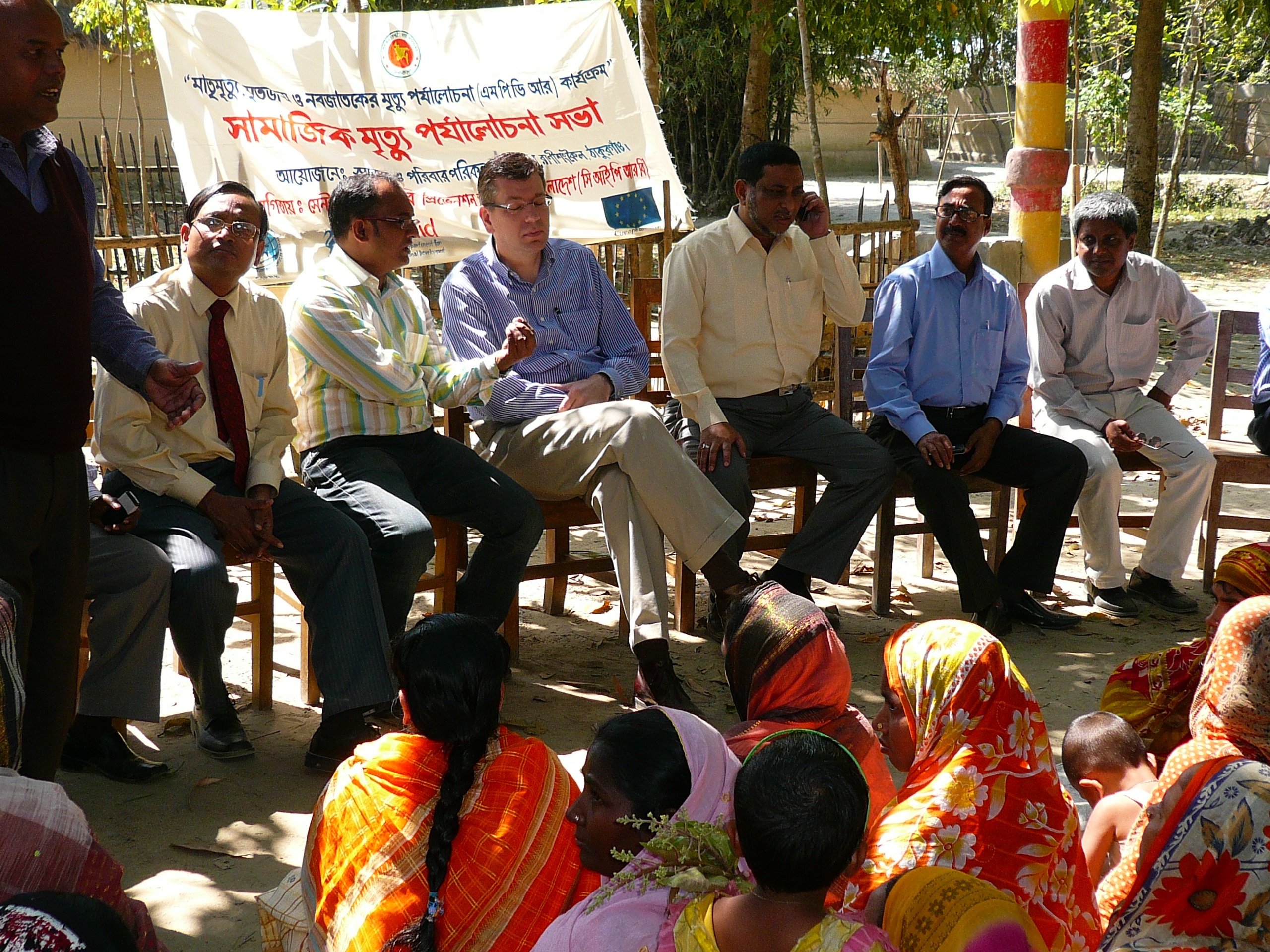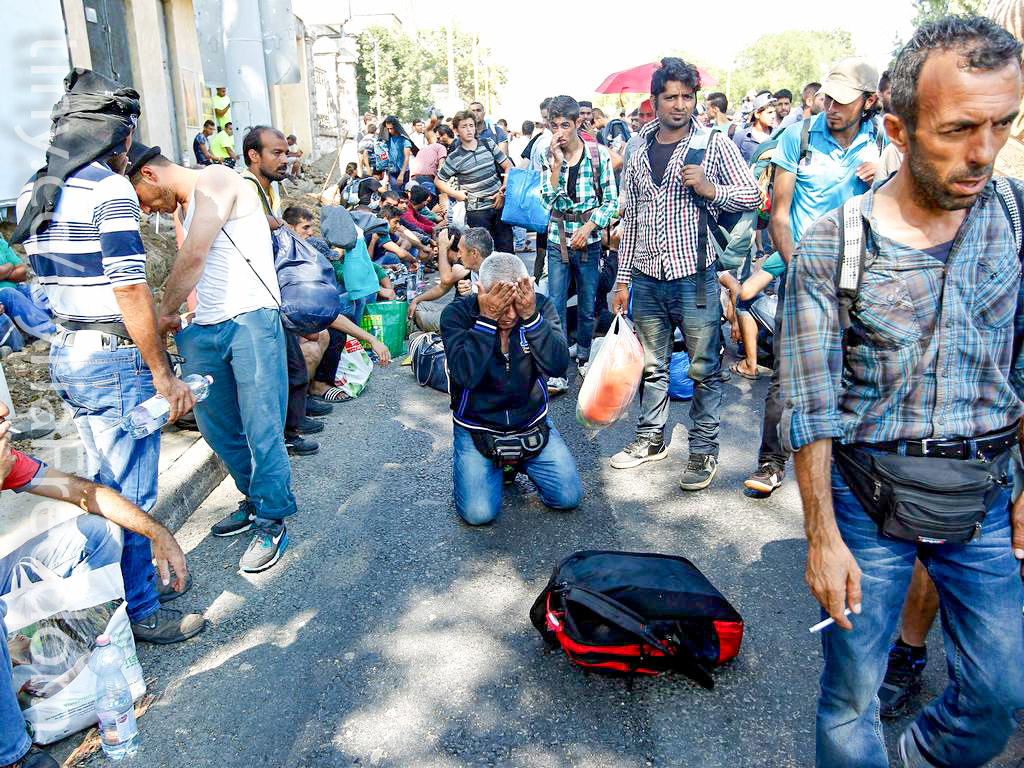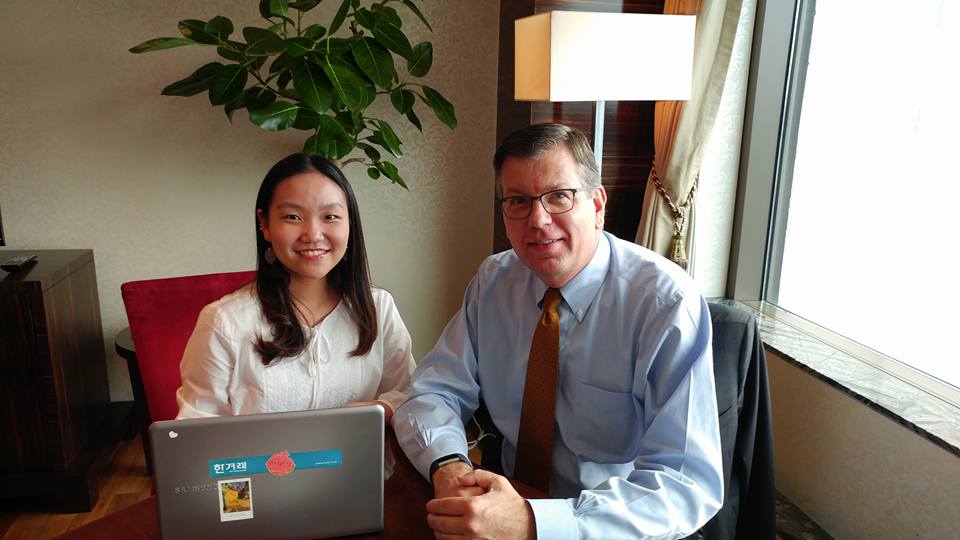“The Syrian crisis is an issue of lack of democracy, with the middle-class wanting to have more say — leading to instability. So now we have refugees. In many ways, development issues that happen in [the Middle East] create problems in Europe.”
The world was once easily divided into “developed” or “developing” nations according to economic and technological differences. However, as developing nations industrialise and reach middle-income status, countries across the globe are beginning to share problems. Issues such as extremes between wealth, youth turning to extremist groups and political instability are crossing the boundaries between developed and developing countries worldwide.
The United Nations Population Fund (UNFPA) is trying to help countries solve their problems without falling into the old paradigm of benefiting on the subjugation of others, mainly women and youth. To achieve this UNFPA does the following: promotes voluntary family planning, educates women to help them avoid complications during pregnancy and advocates for gender equality – particularly in terms of equal economic power.
To find out more about their work, as well as the progress of development and its role in the current refugee crisis, the IPF spoke to Arthur Erken, Senior Director of Partnerships and Communications at UNFPA.
The decline in aid
“We deal with resource mobilisation for the organisation,” Arthur explained. “We go to countries to lobby for supporting UNFPA and message about it. In other words, we tell the story of UNFPA.”
With the rise of nationalism and protectionism – evident in the case of Donald Trump’s popularity, Britain leaving the European Union (EU), and the demolition of refugee camps – official development assistance (ODA), or aid given to developing countries, has become a challenge. Arthur, however, maintains that sustainable development will not be possible if this trend continues to gain momentum.
He explained that within the different areas UNFPA works in, women and young people are their main focus of attention.
“When we talk about voluntary family planning, it’s particularly [about] making sure that women have access to information and services.
“What attracts me is the chance we have as a community to get it right for women and girls, which I’m convinced is the key to overall development, peace and stability.”
Saving women by prioritising maternal health
Out of the eight United Nations Millennium Development Goals, the World Health Organisation (WHO) has said that the goal of reducing maternal mortality is the one that remains the furthest from reaching its targets.
In 2015, before his current role, Arthur was the representative for UNFPA offices in Bangladesh and Vietnam. He supported maternal death audits in Bangladesh, where the maternal mortality rate is high. Death audits or surveillance are conducted to ensure every woman who died during pregnancy or childbirth is investigated. The information gathered is then used to guide action towards preventing future maternal deaths and improving maternal mortality measurement.

Arthur conducts maternal death audits in Bangladesh, where the maternal mortality rate is high. [Image credit: UNFPA]
“The story of the woman was tragic. She was in labor, but it was feet first. So they called a traditional midwife. She tried to help and pulled, but it went wrong so she went away. They called the ambulance at the nearest hospital.
“While the ambulance was on its way, they thought the woman had died so they called off the ambulance. Ten minutes later, they go, ‘Hmm…well, the woman is not dead. We should call the ambulance again.’ In the end, the woman died.”
It was her son, a five-year-old, that really struck a chord with Arthur.
“While the whole conversation was taking place about his mom, the boy grabbed his dad so much. He only had his dad left and this boy looked at me like, ‘Oh my god, they are talking about my mom’.”
The boy’s frightened face and his action are what motivates Arthur every day. He still believes that the incident did not have to happen and the woman could have been saved. Roughly 800 women die every day, leaving their children with no mother to take care of them. UNFPA aims to change that.
Arthur had a poster in his office with an Egyptian quote that read: “Women don’t die of diseases we cannot cure. They die because societies haven’t made them their priority.”
In line with the quote, Arthur said:
“If men were able to [birth] children, we would have had the best hospitals and we would’ve made sure that every delivery was painless.”
Lack of development resulting in extremism
“When it comes to Sustainable Development Goals (SDGs), we are all developing countries,” Arthur explained. “I think that’s a good realisation for people who come from countries like mine, the Netherlands, because the old prejudice about how we are developed and we have all the solutions is now over.”
Arthur noted that SDGs have an inclusive agenda; one which is important for everyone. The core reason wealthy and poorer countries are struggling to develop sustainably lies in the paradoxical relationship between development and equality — with development comes more inequality.

Arthur believes that by not addressing development issues in other countries, we are creating global problems such as the refugee crisis and Isis. [Image credit: The UNFPA]
“Although Vietnam was mainly an egalitarian country with its Communist system, it has now become a middle income country,” Arthur said, “even that country experienced increased inequality between certain population groups like ethnic minorities, but also within the main population — the urban poor.”
Inequality doesn’t just result in poverty. Young people can become so disenfranchised that they become vulnerable to the ideas of extremism.
“A lot of the problems we see now in the world [resulting in] increased instability, such as terrorism and migration shifts, to a large extent are driven by young people not feeling that they are part of the society. You don’t see 65-year-olds fighting with ISIS. You see young men fighting [with] Isis.”
There is a reason why young people are turning their backs on the established government. Arthur believes that instead of expecting the United Nations (UN) to come up with a solution, it is more feasible for countries to address these issues themselves.
“We know more and more countries are moving into middle-income status because of economic growth. This is something we can predict will happen with more countries because we just measure GDP per capita, which is relatively easy. But we start to ask a lot of questions about poverty, lack of inclusiveness and inequality.”
Local development problems turning to global problems
According to Arthur, ODA is no longer a given. It is under debate, particularly in more Western countries – the traditional ODA countries – because of the refugee crisis and their own problems following the economic downturn in 2008.
“The challenge for us is that the public relations with ODA in general is not good. We don’t explain well enough that it’s in our interests to develop our neighbours and the rest of the countries.”
Presenting the Syria conflict as an example, Arthur said: “The Syrian crisis is more of an issue of lack of democracy with the middle-class wanting to have more say — leading to instability. So now we have refugees. In many ways, development issues that happen in [the Middle East] create problems in Europe.”
Arthur highlighted the need for world citizens to link different issues across the globe, stressing that even a local issue can grow into a global one. He accepted that UNFPA needs to better explain the link to the public and help people understand why it’s so important to give aid to developing countries.

Arthur explained that young people whose countries are suffering from lack of development will inevitably migrate to the Western world to seek opportunities there. [Image credit: Flickr/Freedom House]
“People think we simply give money to Africa and we have problems. But I’m saying that when the African population will double in the next 20 or 30 years and we don’t develop Africa, then where will the young people go?”
Investing in youth will lead to sustainable development
Although Arthur does think the culture of “giving and sharing” among young people no longer exists or has weakened overtime, he has not lost faith. He believes that increasing investment in young people is the answer to sustainable development. While on a recent trip to Italy to speak to the Ministry of Foreign Affairs about ODA, he realised the true impact young people from different countries can have.
“The Ministry of Foreign Affairs showed me a chart and asked, ‘Arthur, where do you think the refugees in Italy come from?’ They come via Libya. The largest groups of refugees who come into Italy are from Nigeria, Eritrea and Gambia. You can kind of understand [why they’re fleeing from] Nigeria; but not Eritrea and Gambia.
“These [refugees from Eritrea and Gambia] are the young people who have nothing to lose. Think that this population size will increase to a billion in the next 20 or 30 years. If states don’t get it right, these people will come knocking on your doors.”
This article was nominated for an IPF Contributor of the Month award.


